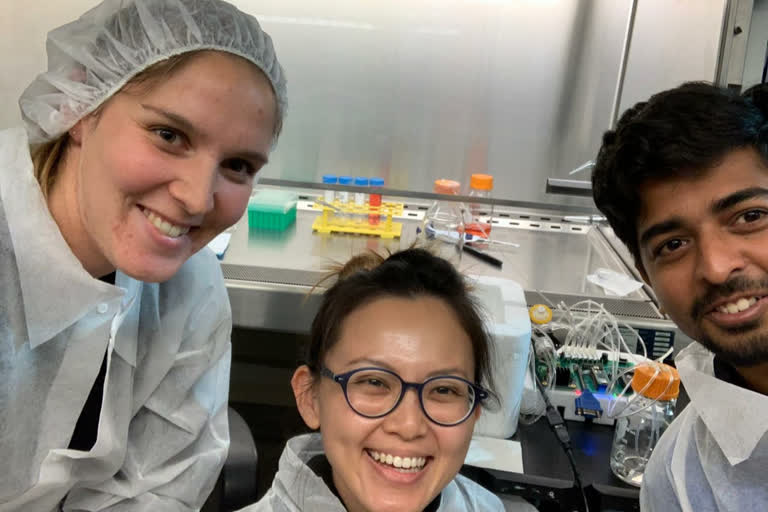Chennai: Indian Institute of Technology Madras and Massachusetts Institute of Technology (MIT) Scientists have grown human brain tissues called 'organoids' with help of a 3D Printed Bioreactor that they have jointly developed. The objective was to observe the brain tissues while they grow and develop, a technology that can potentially accelerate medical and therapeutic discoveries for diseases such as cancer and neurological disorders like Alzheimer’s and Parkinson’s.
Cell culture is one of the fundamental steps in validation of the human organ model, whether it may be a pre-clinical study for Covid-19, cancer medicine discovery or any medicine to be used on humans. There is an open challenge in growing cells for long durations and studying them in real-time to gain a better understanding of the effects of medicine.
Also Read:LIVE: Mumbai airport to remain shut till 8 pm due to cyclone alert
The present cell culture protocols involve separate chambers for incubation and imaging, requiring that cells are physically transferred to the imaging chamber. However, this poses the risk of false results and chances for contamination.
IIT Madras and MIT Scientists came up with a novel solution, which let the cell grow uninterruptedly. In this invention, a 3D printed micro-incubator and imaging chamber was made into a single palm-sized platform, which was successfully demonstrated for long-term human brain cells culture and real-time imaging.
The findings of this research were recently published in the reputed, peer-reviewed international journal Biomicrofluidics.
The Research Team included Mr Ikram Khan (first author) and Prof. Anil Prabhakar from IIT Madras and Ms Chloe Delepine, Ms Hayley Tsang, Mr Vincent Pham, and Prof. Mriganka Sur from MIT.
Prof. Anil Prabhakar is a faculty in the Department of Electrical Engineering, IIT Madras. Mr Ikram Khan is an alumnus of IIT Madras (MS Opto-Electronics, 2015–19) and CEO of ISMO Bio-Photonics, an IIT Madras-incubated startup working on developing products like microfluidic bio-reactors, microfluidic accessories, and fibre lasers.
Elaborating on the unique points of this Research, Prof. Anil Prabhakar, Department of Electrical Engineering, IIT Madras, "The design from this research is a scalable microfluidic technology in which copies of an organoid can be grown simultaneously in different wells, for studies in basic and applied science. This bioreactor can be completely automated with different protocols and used for drug discovery, thus drastically reducing labour costs, errors, and time to market. Different environmental sensors can be combined with this micro-incubator and our device fits with most of the microscopes for live-cell imaging."
Also Read:LIVE: Virtual hearing of Narada case underway; 4 ministers held
This technology has been patented in India. The research team is exploring the feasibility of international collaborations. This project was taken up with the support of the Center for Computational Brain Research (CCBR) at IIT Madras for funding and Sur’s Lab at Massachusetts Institute of Technology (MIT), U.S., which guided the researchers.
Further elaborating on the applications of this technology, Mr Ikram Khan said, "Considering the importance of our micro-incubator in the field of healthcare and in the pharmaceutical industry, we are working through ISMO Bio-Photonics to develop a user-friendly minimum viable product, and raising seed grants for its further development. This will enable biologists or laboratory technicians to operate, control and monitor the growth of organoids with a user-friendly system powered by Artificial Intelligence-assisted automated cell culture protocols."
Mr Ikram Khan was a Visiting Researcher at MIT on an Internship between July and September 2019 at the Department of Brain and Cognitive Research.
Also Read:Indian Railways runs Oxygen Express despite cyclone warning
